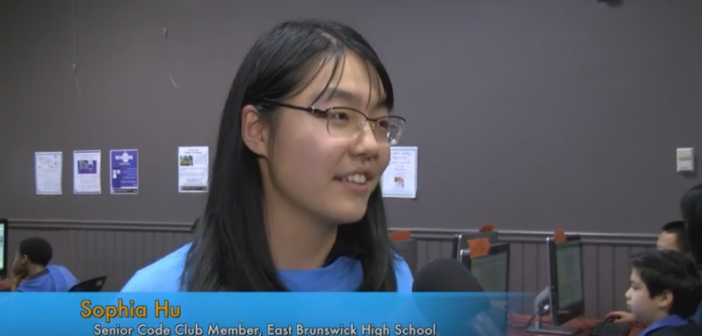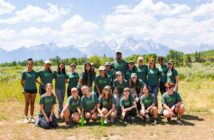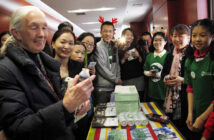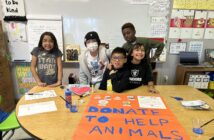Just after our excited chat about the new Ed Sheeran album, Sophia taught me that Python is more than just the name of a venomous tropical snake and that I should have paid more attention in seventh grade Powerpoint class. This seventeen-year-old computer whizz from East Brunswick, New Jersey could probably write groundbreaking code in her sleep and still wake up with a smile on her face ready to greet the day and make changes in her community and the world. She sees promise in a world with advanced technology and she wants to figure out how to use that technology for good to save the environment.
Sophia now sits on the Roots & Shoots U.S. Roots & Shoots Youth Council USA for the third year in a row. With support from the Jane Goodall Institute, members of the RSYC receive leadership training and guidance from Roots & Shoots staff which they then share with hundreds of thousands of Roots & Shoots members around the world as the youth representatives of the Jane Goodall Institute.
Sophia has used her time on the council to make great stride for girls in technology, organizing countless Roots & Shoots projects with her Code Club and local library to show her peers that coding is so much more than 1’s and 0’s. I caught up with Sophia to learn about her own hardwiring that has made her such a driven, passionate young leader.
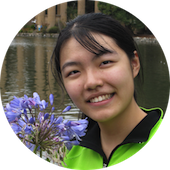 Name: Sophia Hu
Name: Sophia Hu
Age: 17
Exemplary Compassionate Leadership Skills/Traits:
Introspective
Empathetic
A Team Player
Roots & Shoots Projects:
Hour of Code
Summer Literacy Carnival
Kindness Notes
Favorite Books/Song: “I think Slaughterhouse 5 is my favorite book of all time. And in contrast, Ed Sheeran is my favorite artist right now. I mean, his new song “Galway Girl”, how could you not love that.”
Q: What is your favorite Roots & Shoots project that you’ve worked on?
Sophia: I would have to say “Hour of Code.” This is a project that I worked on throughout the month of December with my school’s Code Club to raise awareness about the usefulness of computer science. We partnered with our local library to put on coding events for all age groups. We gave instruction on everything from drag and drop for younger kids to the ins and outs of emailing for adults. We also invited tech leaders from the community to speak about what they do and expand the notion of where coding can get you.
It is very important to support technology development at a young age, especially in disadvantaged communities because it opens up so many opportunities. A lot of kids express interest in tech when they are young but because of outside influences, such as friends and family who may not find the subject as fascinating, they drop it before high school. I think that in our society today, these skills are really an asset no matter what you do. Technology helps solve problems.
Q: What was your experience with your peers and family in terms of their outlook on tech?
Sophia: When I was in middle school, I wasn’t completely sure whether I liked computer science or not. Luckily I attended a summer coding program that totally got me hooked. My parents have been really supportive, they don’t push me one way or the other, and my school also offers a bunch of computer science classes and ways to get involved with tech.
Q: What has been one of your failures that has taught you something valuable?
Sophia: In middle school I was, and still am, a huge supporter of Girl Up (one of the UN’s campaigns for women). I tried to raise money for them by going around to students at lunch and asking them to donate. I set very high expectations in that case and didn’t end up raising a lot of money. That taught me the importance of persistence and setting reasonable goals. Sometimes a good project doesn’t always succeed but when that happens we learn that it is okay to fail but not okay to give up. Using those experiences you set up an action plan or a more practical plan for your next endeavor. This provided me with inspiration for an app I created recently as my final culminating project for a coding summer camp. The app allows you to share your goals with other people and keep each other motivated.
Q: What inspires you to be an activist? How did you get started in this work?
Sophia: I am inspired by the progress that the world has made so far on a lot of different issues and my vision for the future and what it could be. Even though it seems very far removed, I am inspired by the fact that people have made such great strides to end poverty and eradicate malaria, advances we might have never thought possible a decade or so ago. Dr. Jane has actually inspired me to become an environmental engineer because I watched a 60 Minutes program on her work that really spoke to me. Her work in conservation and protecting chimps and now in youth development has been so influential. Environmental engineering would be an ideal way to combine my passions for technology and conservation in a way that makes a career.
I got started in service work in middle school when I first started volunteering at the public library. We got a grant to give out books for free, so we decided to turn that into an event that brought the whole community together. We picked out a book, The Man Called Ove, and passed out a copy to anyone who wanted one sort of like a community book club, and after a few weeks we held a screening of the film. I’ve been volunteering with that library on a regular basis ever since.
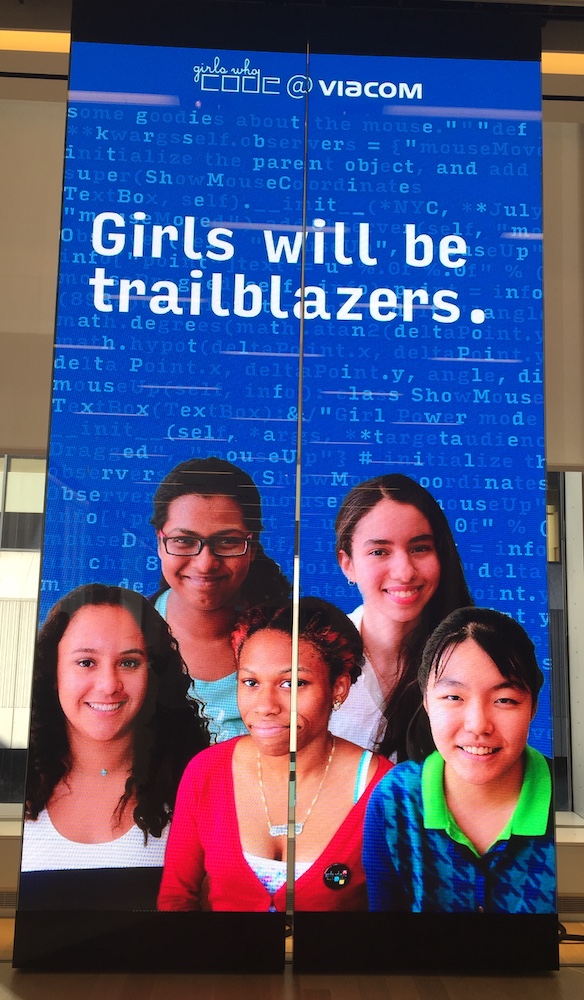 Q: What advice do you have for other young people who want to get involved in their communities or make a difference for the world?
Q: What advice do you have for other young people who want to get involved in their communities or make a difference for the world?
Sophia: My advice is don’t be afraid to reach out to other people because the worst thing that could happen is they say no. Persistence is the key to success. There have been a few times where I’ve seen a TED Talk or presentation and I’ve emailed the speaker and they never reply. But every once in a while they do, and you can gain some great advice. Just yesterday I got a reply from the founder of Little Bits, a revolutionary company that designs coding toys for kids.
Q: This month is Women’s History month, are you working on something in particular geared towards women?
Sophia: Yes, my school’s Code Club is currently developing a summer program for girls at the public library to teach them how to code. A lot of times at our school there are some girls who aren’t available to come to club meetings or events throughout the school day. We are hoping that offering a summer program will get those people involved.
Q: What do you think about the current state of the tech industry and the amount of women involved?
Sophia: I think that it has been getting much better for women in the STEM fields through exposure of girls to female role models. There has been a huge increase in enrollment in computer science and that seems like a trend that is going to continue and one that I am really happy to hear about. It just want everyone to experience what a creative subject it can be. For instance, last summer I built a robotic arm that is muscle controlled. My goal was to have it be used for assistive technology. It uses little sticky pads that you can connect to your arm and the action potentials in your arm are what control the robotic arm, so it mimics you.
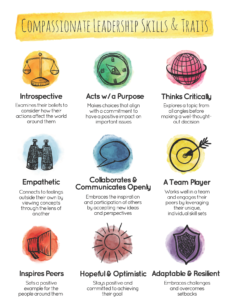 Sophia is introspective, empathetic, and a team player. In fact, she possess all of the skills and traits of a compassionate leader. Fostering these traits in young people is our way of working toward a better future — one where leaders from the playground to the boardroom make decisions that are good for people, other animals, and the environment. Read more about compassionate leadership skills and traits here.
Sophia is introspective, empathetic, and a team player. In fact, she possess all of the skills and traits of a compassionate leader. Fostering these traits in young people is our way of working toward a better future — one where leaders from the playground to the boardroom make decisions that are good for people, other animals, and the environment. Read more about compassionate leadership skills and traits here.
Educators, we’ve designed a free, online course to support you as you grow compassionate leaders through service learning. Join the course.


